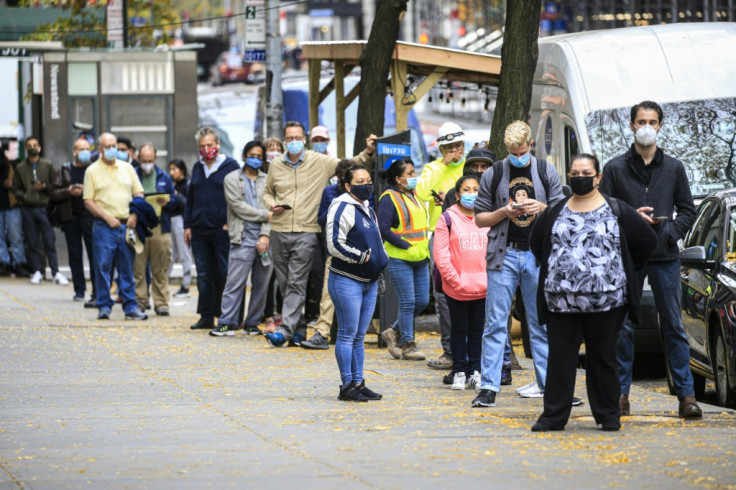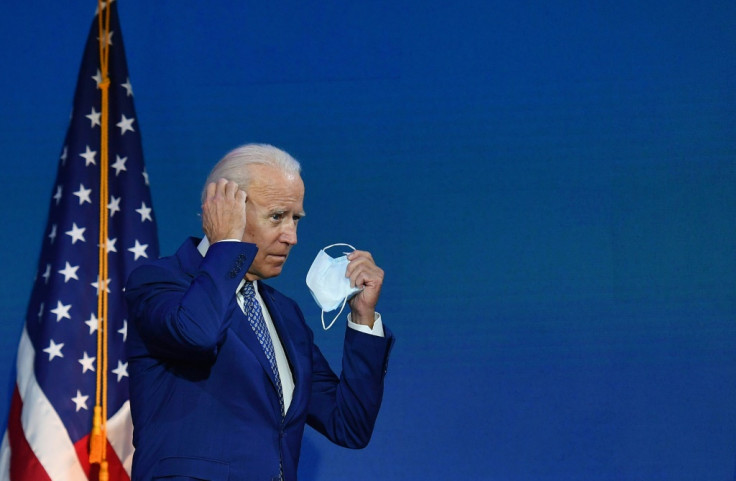US hospitals again under pressure with Covid on the rise
The situation is particularly worrying in the border city of El Paso in western Texas, a state where coronavirus cases have exceeded one million.
After several weeks of rapidly rising coronavirus cases, hospitals around the United States are once again overwhelmed, forcing local authorities to take new measures to cope with the pandemic.
On Tuesday a record 61,964 people were hospitalised with Covid-19 across the country, marking the first time the case tally passed the 60,000 mark, according to the Covid Tracking Project.
The situation is particularly worrying in the border city of El Paso in western Texas, a state where coronavirus cases have exceeded one million.

More than 1,000 people are hospitalised in El Paso County alone, a substantial portion of the state's 6,170 hospitalisations.
"These are dark times," Ogechika Alozie, chief medical officer at the city's Del Sol Medical Center, told CNN Wednesday. "I think the biggest word is just fatigue. And there's frustration."
Cases are so high that Texas Governor Greg Abbott has requested a military medical center be converted for intake of non-Covid patients in order to free up space in hospitals. County officials, meanwhile, have requested additional mobile morgues.
The situation in El Paso is typical of the difficulties local governments are facing in the United States, where President Donald Trump has downplayed the epidemic and left handling of the health crisis to state, county and city officials.

In late October an El Paso County judge ordered non-essential businesses closed for two weeks, a measure fought by El Paso's mayor and the state attorney general.
Trump has placed much of his hopes of fighting the coronavirus pandemic on rapid development of a vaccine.
Positive Phase 3 trials of a vaccine developed by Pfizer mean inoculations are likely to begin rolling out by the end of the year or in early 2021.

But with no vaccine at present, the US is facing troubling circumstances.
The number of deaths each day is still far from levels seen in the spring, however the US recorded more than 1,500 fatalities in 24 hours on Tuesday.
The coronavirus death rate has "declined since the spring partly because hospitals and staff were so overstretched back then. As cases take off across the country, we will increasingly start seeing those limitations again," said emergency medicine specialist Craig Spencer on Twitter.
The US contamination curve has undergone three notable waves: a first in the spring with an epicenter in New York, a second in the summer that hit the US south particularly hard, and a third since mid-October with records being set in the Midwest.
In North and South Dakota, more than one in 2,000 residents is currently hospitalized with Covid-19, according to the Covid Tracking Project.
North Dakota Governor Doug Burgum this week authorized health workers who test positive to continue working in Covid units in order to cope with the "enormous pressure" on the state healthcare system.
In Minnesota, Governor Tim Walz ordered bars and restaurants to close at 10:00 pm and placed a 10-person limit on gatherings.
Restrictions are popping up beyond the Midwest as well, such as in Utah, where wearing a mask in public is now mandatory statewide. And in New York state, restaurants, bars and gyms will have to close at 10:00 pm starting Friday.
President-elect Joe Biden pleaded Monday once again for Americans to wear face coverings, telling viewers in a televised speech that "a mask is not a political statement, but it is a good way to start putting the country together."
He has pledged to tackle the health crisis from day one of his administration, which begins January 20.
Copyright AFP. All rights reserved.
This article is copyrighted by International Business Times, the business news leader





















